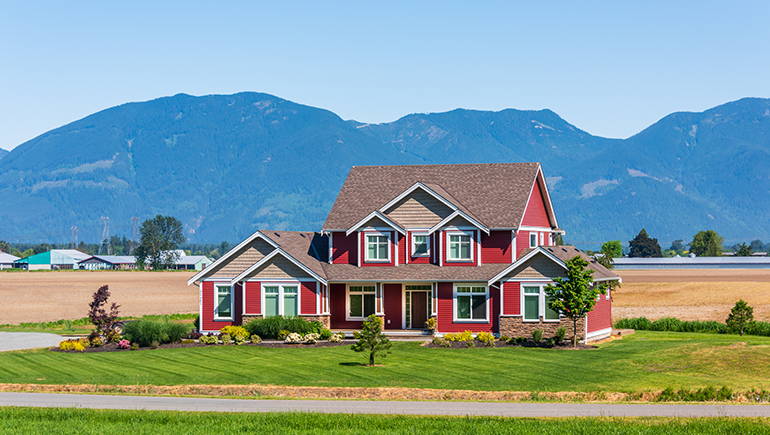Farmers operating as incorporated entities must file UHT

If your Canadian clients own farm properties with more than one dwelling, they must file an Underused Housing Tax (UHT) return even where all of the dwellings are occupied.
The federal Underused Housing Tax (UHT) Act, designed to stop speculation of residential real estate, is an annual one per cent tax on the value of vacant and underused residential properties owned by foreign nationals who aren’t permanent residents or Canadian citizens.
Excluded owners of residential property including Canadian citizens and permanent residents don’t have to file a UHT return or pay the tax.
However, private companies, partnerships, and trusts, owned 90 per cent or more by Canadians, must file a declaration.
How the UHT affects farms
In BC, more than half (56 per cent) of farms operate as incorporated entities or partnerships, according to Country Life in BC.
Many farms which are 100 per cent Canadian owned have two or more residences for the farmer and family, extended family, farm workers, and seasonal labour.
A UHT return must include the value of each residence on the farm.
Even where the farm is exempt from the UHT as a specified Canadian corporation and there is no tax owing, the owner(s) must file a UHT return to claim the exemption.
The penalty for farmers who don’t file is $10,000 a year for entities plus any tax owing. For the 2022 calendar year, returns and payments were due April 30. However, Canada Revenue Agency (CRA) has announced the application of penalties and interest will be waived for late-filing of the UHT return and late-paid UHT payable provided the return is filed and UHT paid by October 31, 2023.
Farmers must also keep records which include the calculation of tax liabilities. Without detailed records, farmers may be denied an exemption.
Records must be kept for a minimum of six years.
More information
- Read CRA’s Underused Housing Tax penalties and interest waived.
- Read BDO Canada, “The Underused Housing Tax and your farm operation.”
- Read Government of Canada details about the UHT.